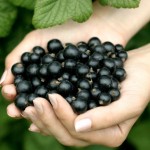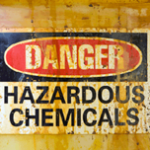Why do we only make all-natural whole food products?
Research has proven time and time again that vitamins from all-natural whole food sources are easier for your body to absorb, safe to use, and more effective than laboratory created synthetic or crystalline vitamins. All-natural whole-foods are alive, vibrant, have all the nutritional co-factors and phytonutrients found in nature, and are full of life giving energy. Synthetic vitamins are essentially dead, they are inert, cheap and potentially dangerous.
So why aren’t all-natural whole-food vitamins used in all nutritional supplements?
 Primarily due to their higher cost and the challenge they present in the nutritional “label wars” game. For example, Amla and Acerola Cherry are vastly superior sources of vitamin C than is ascorbic acid. But they cost 10 to 20 times more per mg! What’s more, only small dosages are needed to fulfill the body’s needs verses the huge doses of ascorbic acid needed, and therefore they don’t “compare” well on the federally regulated nutritional supplement label. Can you imagine the difficulty in convincing a novice vitamin buyer that 25mg of Amla is better for their body than 1000mg of ascorbic acid? Yet it’s true.
Primarily due to their higher cost and the challenge they present in the nutritional “label wars” game. For example, Amla and Acerola Cherry are vastly superior sources of vitamin C than is ascorbic acid. But they cost 10 to 20 times more per mg! What’s more, only small dosages are needed to fulfill the body’s needs verses the huge doses of ascorbic acid needed, and therefore they don’t “compare” well on the federally regulated nutritional supplement label. Can you imagine the difficulty in convincing a novice vitamin buyer that 25mg of Amla is better for their body than 1000mg of ascorbic acid? Yet it’s true.
Unfortunately not many manufacturers are willing to go through the effort necessary to educate the consumer on why he or she should take all-natural whole-food supplements when they cost more, and seemingly “appear” to deliver less.
 Furthermore, and most importantly, synthetic vitamins are not really vitamins at all. They are fractions of vitamins. For example, natural vitamin C is whole and complete, but ascorbic acid, which is the vitamin C used in most supplements, is missing Rutin, Bioflavonoids and the “J and K” factors. Because these vital nutrient cofactors are missing, the supplement will actually “rob” the missing elements from bodily tissues and bones. Thus, taking vitamins other than all-natural whole-food vitamins can actually create a vitamin deficiency in your body!
Furthermore, and most importantly, synthetic vitamins are not really vitamins at all. They are fractions of vitamins. For example, natural vitamin C is whole and complete, but ascorbic acid, which is the vitamin C used in most supplements, is missing Rutin, Bioflavonoids and the “J and K” factors. Because these vital nutrient cofactors are missing, the supplement will actually “rob” the missing elements from bodily tissues and bones. Thus, taking vitamins other than all-natural whole-food vitamins can actually create a vitamin deficiency in your body!
How to ensure you’re buying healthy, all natural, whole-food vitamins:
Read the label, and look for ingredient names that are from natural foods or plants. Names such as wheat germ, brewers yeast, green pepper, orange peel, rose hips, safflower oil, acerola cherry, shiitake mushroom, alfalfa, black strap molasses, dunaliella salina, wild yam, carrot, rice bran, chickweed, wheat grass, amla, barley grass, nettles, algae, kelp, fructose, pine park, grape seed extract, turmeric, etc.
 The laboratory created synthetic vitamins are easy to recognize too. They have names that sound like a chemist created them. Protect your body and stay away from vitamins with chemical names such as acetate, palitate, thiamin mononitrate, thiamin hydrochloride, riboflavin, pyridoxine hydrochloride pteroylglutamic acid, calcium pantothenate, choline, d-biotin, niacin, para-aminobenzoic acid, irradiated ergosterol panthothenic acid, ascorbic acid, alpha-tocopherol, citrates, ascorbates, etc.
The laboratory created synthetic vitamins are easy to recognize too. They have names that sound like a chemist created them. Protect your body and stay away from vitamins with chemical names such as acetate, palitate, thiamin mononitrate, thiamin hydrochloride, riboflavin, pyridoxine hydrochloride pteroylglutamic acid, calcium pantothenate, choline, d-biotin, niacin, para-aminobenzoic acid, irradiated ergosterol panthothenic acid, ascorbic acid, alpha-tocopherol, citrates, ascorbates, etc.
At NWC Naturals™ we use only 100% all-natural whole-food ingredients in all of our products. Although whole-food ingredients cost more up-front than synthetic vitamins, their realized cost is far less, because they are infinitely better for you, providing your body with nutrients in the exact form mother nature intended. With NWC Naturals™ Inc. products you really get what you pay for – optimal health and vitality! Isn’t that why you take supplements in the first place?
